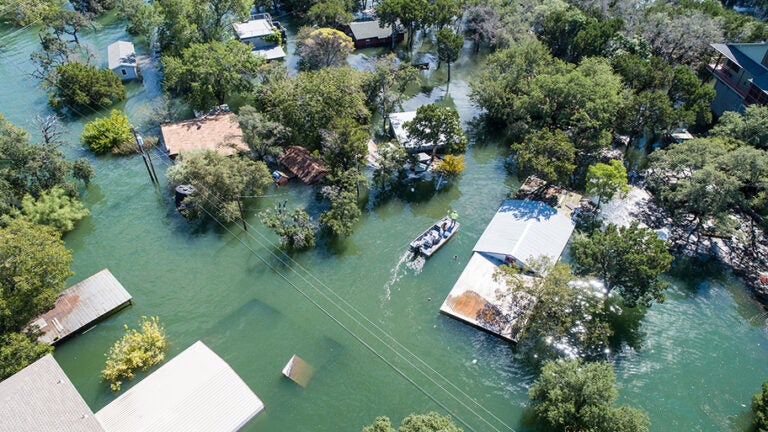
Experts aim to educate the public about confusing environmental information
The specter of more frequent, unprecedented natural disasters looms behind climate change: There are predictions of more numerous wildfires, hotter temperatures, higher tsunamis and more.
Recipients of the 2022 Faculty Innovation Awards, presented by the USC Wrigley Institute for Environmental Studies, headquartered at the USC Dornsife College of Letters, Arts and Sciences, are taking steps to explain to the public the threat and risks posed by climate change in ways that inform and inspire action rather than deepening cultural divisions.
Matthew Kahn, Provost Professor of Economics, and Rob Metcalfe, associate professor of economics, both at USC Dornsife, are using cutting-edge digital tools to accurately convey potential long-term environmental risks for homebuyers.
Expert on science communication who are investigating how political affiliation may distort understanding of climate terms include:
- Gale Sinatra, professor of education and psychology with joint appointments at USC Dornsife and the USC Rossier School of Education
- Wändi Bruine de Bruin, Provost Professor of Public Policy, Psychology and Behavioral Science at USC Dornsife and the USC Price School of Public Policy
- Norbert Schwarz, Provost Professor of Psychology and Marketing at USC Dornsife
Be clear to be meaningful
“To make the best use of climate change research, experts need to share that knowledge with the public in ways that are clear and meaningful,” says Jessica Dutton, executive director and adjunct assistant professor (research) if environmental studies at the USC Wrigley Institute.
For example, the ability to accurately measure and quickly disseminate climate data may provide a useful tool for prospective homebuyers, says Kahn, who, along with Metcalfe, has partnered with Redfin and the First Street Foundation to incorporate historical and current weather data to assign properties with a risk score for flooding or wildfire. The two are also investigating the effect these data are having on purchasing tendencies.
“More homebuyers are asking: Is the home in a fire zone, is there a risk for flooding?” Kahn says. “Thus, buyers are less likely to regret their purchase and sellers can take steps to offset Mother Nature’s punches so that they can still sell their asset for a high price.”
Meanwhile, the challenge of communicating complex scientific information has spurred the work of Sinatra, who says personal emotions and motivations play a large role in an individual’s receptivity to climate-related messaging. For instance, the term “climate crisis” can prompt a different emotional response than “climate justice” or “global warming,” according to Sinatra.
“The goal is to leverage emotions in a positive way — in other words, not to get people upset or angry, but rather to elicit emotions that heighten concern and engagement with the topic. Then we can move to heighten their motivations to pay attention to messages around climate change and to perhaps take actions in their own life to mitigate its effects by adopting more sustainable practices.”
Sinatra’s project will use USC Dornsife’s Understanding America Study and data set, which is a large demographically representative sample of 6,000 individuals across the United States.